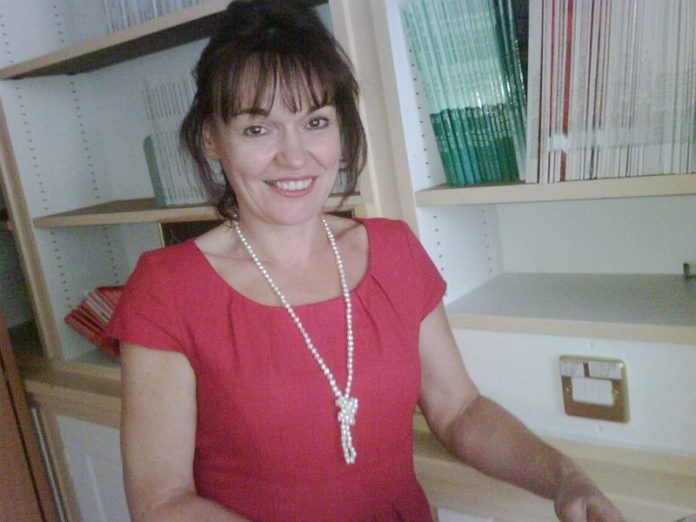The European Molecular Biology Organization (EMBO) and the Federation of European Biochemical Societies (FEBS) announce Carol V. Robinson, Professor of Chemistry at the University of Oxford, UK, as the winner of the 2011 FEBS/EMBO Women in Science Award. Professor Robinson has been recognized for her pioneering work in the development of mass spectrometry as a tool used for investigating the structure and dynamics of protein complexes.
The FEBS/EMBO Women in Science Award rewards the exceptional achievements of a female researcher in molecular biology over the previous five years. Winners of the award are role models who inspire future generations of women in science.
“Carol V. Robinson has pioneered, in an almost single-handed manner, the use of electrospray mass spectrometry for structural studies of large multimeric protein assemblies. She had the courage to do what experts regarded as not feasible and has succeeded in the face of strong skepticism,” stated her collaborator Wolfgang Baumeister from the Max Planck Institute of Biochemistry in Martinsried, Germany, in his nomination of Carol Robinson for the award.
“I am truly delighted that the work of my research group has been honoured in this way,” said Carol Robinson upon hearing of the award. “Women from many continents and countries are employed in my group. They have enriched my research bringing different talents and skills.”
Robinson’s research has opened up a new area of mass spectrometry. Her group was one of the first to use electrospray mass spectrometry to study large protein complexes. In collaboration with Micromass UK, she designed an instrument specifically adapted for the detection of high-mass complexes. This instrument has since gone into production in Canada and the UK and has now been installed in many laboratories around the world. More recently, her research has focused on combining mass spectrometry with cryoelectron microscopy.
The 2011 winner is distinguished not only for her scientific contributions, but also for her support and mentoring of women pursuing careers in science. As a group leader, Carol understands the importance of a flexible workplace for the scientists in her lab who are parents.
Her own career path was marked by her early start as a laboratory technician for seven years before obtaining a PhD. She then took an eight-year break to raise her three children. She returned to the lab as a post doctoral researcher, built her research group, and became the first female professor of chemistry at Cambridge University in 2001. Three years later, she was made a Fellow of the Royal Society and was awarded the Royal Society’s Rosalind Franklin Award that promotes women in science, technology, engineering and mathematics.
The 2011 FEBS/EMBO Women in Science Award of 10,000 euros will be presented to Carol V. Robinson on 28 June at the 36th FEBS Congress in Torino, Italy, where she will present a special lecture.
Nominations for the 2012 FEBS/EMBO Women in Science Award close on 15 October 2011. For more information, please visit: http://www.embo.org/policy-and-society/women-in-science/women-in-science-award.html or http://www.febs.org/women-award.
About EMBO
The European Molecular Biology Organization (EMBO) promotes excellence in molecular life
sciences in Europe by recognizing and fostering talented scientists. Since 1964, leading scientists are elected annually to become EMBO Members based on proven excellence in research. Members number almost 1500 today. Fifty-five scientists from the EMBO membership have received the Nobel Prize.
Four leading peer-reviewed journals – The EMBO Journal, EMBO reports, Molecular Systems Biology and EMBO Molecular Medicine – span a broad spectrum of topics of molecular biology and reflect how science is shaping the world.
EMBO funding, training and networking activities impact thousands of scientists every year, promoting collaboration in all areas of molecular biology – within its 27 member states, in Europe and neighbouring countries, and worldwide.
For more information: www.embo.org
About FEBS
The Federation of European Biochemical Societies (FEBS) is a leading European organization of the life sciences. Its constituent societies, whose membership exceeds 40,000 in Europe and adjoining countries, extend from Ireland and Iceland in the west, to Armenia in the east.
FEBS promotes research and the teaching of biochemistry, molecular cell biology and molecular biophysics, by supporting an annual congress, a rich program of advanced practical and theoretical courses, workshops and special lectures. These activities are complemented by an extensive fellowships program, enabling mobility of young and senior scientists across the European continent.
FEBS has pioneered the creation of scientific publication forums for European life scientists by its three leading journals, FEBS Journal, FEBS Letters and Molecular Oncology.
Being concerned about Europe’s scientific future, FEBS has been involved in the establishment of the European Life Science Forum (ELSF) and the Initiative for Science in Europe (ISE), both active in developing new channels and means for advancing science.
For more information: http://www.febs.org/














